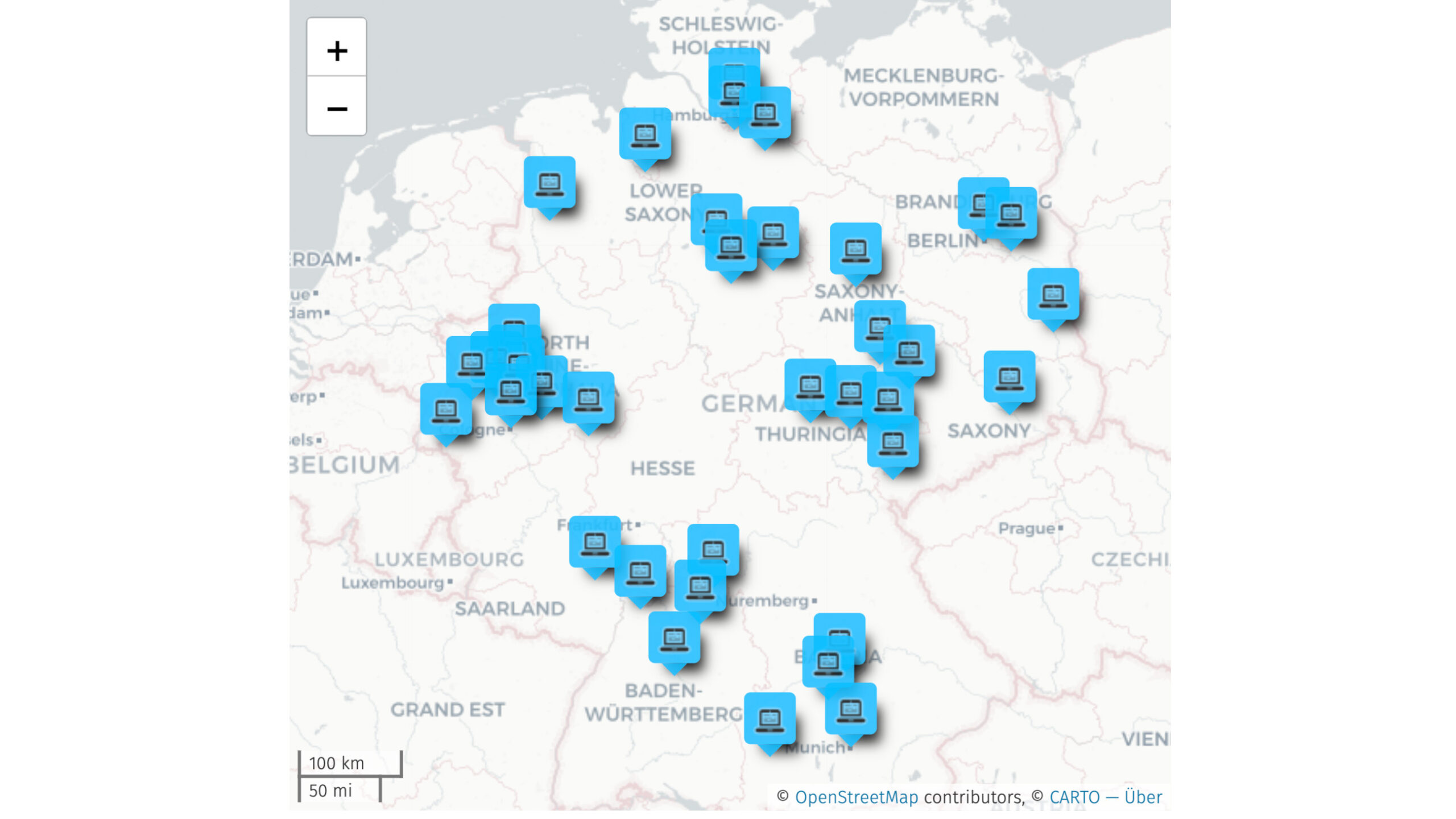The association Hey, Alter! (“Hey, old man!”) has already passed on more than 15,000 computers to young people. Primarily discarded office computers or PCs from private households, the association now collects at 37 locations in Germany. But what can children and young people do with them?
Although new technology is becoming cheaper and cheaper, not all families in Germany can afford a desktop PC, a notebook or a tablet. According to a study by the Bertelsmann Foundation, more than one in five children in Germany is at risk of poverty. This particularly affects families with single parents or with more than two children.
Access to technical aids and the Internet has been essential in the education system for years now. At the same time, there is also an important opportunity for learning in the use and maintenance of older hardware. In addition to providing the computers, the association offers children and young people learning materials for basic knowledge about computer technology.
Understanding PC basics thanks to Linux and open source
On its homepage, Hey, Alter! states that it only sells used notebooks, tablets and desktop PCs to children and young people. For this purpose, companies or private individuals can contact the various locations of the association and check for themselves beforehand whether the discarded hardware meets the requirements. These requirements are pretty low: a 2 GHz dual-core processor, 4 GB RAM, laptops with microphone and camera as well as desktop PCs with mouse and keyboard are preferred.
After delivery, the hardware is checked by volunteer IT specialists or cooperating IT companies. They then install a software package consisting of the open source and resource-saving operating system Linux Ubuntu on the computers. In order to provide children and young people with access to the internet as well as the first basics for school, a browser and the open source word processing programme Libre Office are also installed.
(Introduction to Hey, Alter! In German only)
With this basis, the students can start right away after receiving the computers. However, the use of open-source software requires a basic familiarity with IT. This is because Linux Ubuntu is much more maintenance-intensive than Microsoft Windows or Apple macOS. At the same time, children and young people learn much better how the individual IT components work together and which programme components are needed.
This means that pupils have to deal more intensively with used computers — an important learning curve in times when computers can increasingly no longer be repaired by an amateur, only by contacting the manufacturer (which can occur unaffordable costs). Hey, Alter! created the learning materials in cooperation with the programming school “Codenauten”. Here they explain, for example, how to connect and install new hardware or how to update the operating system.
Hey, Alter! calls for participation
Even though Hey, Alter! has already been able to place many computers with young people, the association is calling for people to contribute from all angles. The homepage explains to interested parties how a new location can be opened. First of all, a storage room is needed so that donations in kind can be accepted from the business community.
Afterwards, newcomers need to contact an IT company that checks the computers and prepares them for further use. After the IT package provided has been installed, the computers can be distributed to children in contact with schools. The association explicitly points out that the donations are possible “without bureaucratic effort or approval procedures”.
Compared to the commercial remanufacturing of old hardware, such as refurbished items, the process is much simpler with Hey, Alter! However, the savings in CO2 emissions are similarly high. When the old hardware is brokered, the only emissions are for transport, but these remain low due to the many locations and procurement from local companies.
At the same time, young people are taught how to extend the life of computer hardware with the right programs and the necessary care. Associations like Hey, Alter!, “Computertruhe”, which implement a similar concept for adult education, or also the initiative PC donations thus show how sustainable ideas can be combined with social initiative.
The post Giving Old Computers to Young People Is Better for More Than Just the Environment appeared first on Digital for Good | RESET.ORG.


